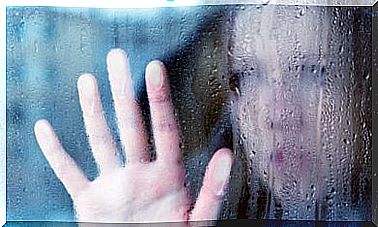The Misunderstanding Of Mental Suffering

It is estimated that about 10.8% of the population has a diagnosis of mental disorder. This number, in itself alarming, increases significantly if we take into account institutionalized people and those who, despite having symptoms, have not been consulted or have not received a diagnosis. Therefore, it is paradoxical that there is still a general misunderstanding about mental suffering.
We are increasingly hearing about illnesses such as depression or chronic anxiety (something to be expected given their high prevalence). Apparently, society is admitting the existence of these clinical conditions and the impact they have on the lives of those who have them.
However, we still don’t know how to deal with them properly when they appear in our immediate environment. This lack of empathy, knowledge or resources leads people who suffer with them to also face incomprehension, judgment and a feeling of loneliness.

The misunderstanding of mental suffering by the nearby environment
Suffering from anxiety disorders, mood disorders, eating disorders or any other mental pathology is a challenge. Not only because of the direct consequences of the disease, but also because of the difficulty in finding the necessary support.
Unfortunately, misunderstandings often start with the health professionals themselves : whether due to the limited consultation time available in public services, the wrong diagnosis or the excessive weight given to medications compared to the few possibilities of psychotherapy available.
In short, many people do not find the professional guidance and support they need. Sometimes they are diagnosed with anxiety, depression or any other label without taking into account that their reactions are often understandable and expected in the context of the society in which we live.
However, it is the misunderstanding of mental suffering by the surrounding environment that most affects. Reactions from family, friends, acquaintances and colleagues are not always the most appropriate. Thus, different postures tend to manifest themselves:
Minimize the problem and invalidate emotions
The immediate and natural reaction of many people when hearing the story of someone who suffers from the disorder is to minimize it. Thus, they use phrases such as: “you’re making a storm in a teapot”, “we all have problems”, or “it’s just a bad phase, it’s going to pass”. But this, far from helping the person to relativize, only makes him feel more alone, misunderstood and invalidated.
blame the sick person
Another very common response is to blame the sick person for their condition. “You have a very negative attitude, so you’ll never get out of this”, “you don’t do anything all day, you have to go out and distract yourself”, “you don’t eat because you don’t want to”… These and other frequent statements just reflect the misunderstanding the mental suffering that is still present. Far from being harmless, they markedly increase a person’s emotional distress.
Stigmatize
There is another equally harmful posture. It consists in stigmatizing the person, starting to define him by his illness and not by who he is. Instead of empathizing with her, he just recommends that she seek professional help. That is, the responsibility for care is delegated and the individual is left alone with their problems.

How to avoid misunderstanding related to mental suffering?
To avoid all this, many people with psychological disorders choose to hide their condition and are slow to seek help. Therefore, if someone in your environment is in this situation, apply the following measures:
- Listen. Take a genuine interest in what the person thinks, feels, and experiences to understand them.
- Empathize . Instead of judging or blaming her, try putting yourself in her shoes and treating her as you would like to be treated.
- Be patient. Psychological disorders can cause people to become irritated or to act in ways that are painful or incomprehensible. Remember that the greatest suffering is being suffered by them.
It is true that professional help is essential on many occasions. Therefore, it is good that you encourage this person to use the resources at their disposal. However, support from the nearby environment is essential. Therefore, get involved and make yourself available to accompany her in the process. Receiving understanding and support significantly increases the chances of recovery.









